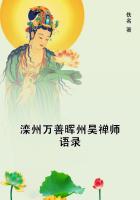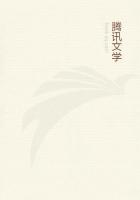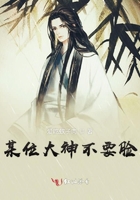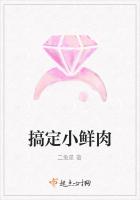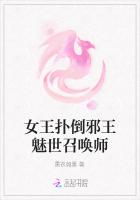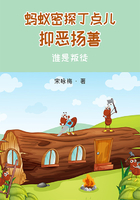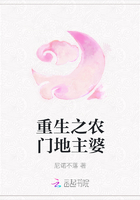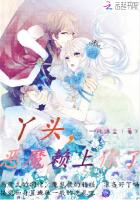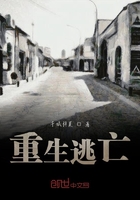I never saw such a change in a woman as in Brighten's sister-in-law that evening.She was bright and jolly,and seemed at least ten years younger.She bustled round and helped her sister to get tea ready.
She rooted out some old china that Mrs Brighten had stowed away somewhere,and set the table as I seldom saw it set out there.She propped Jim up with pillows,and laughed and played with him like a great girl.
She described Sydney and Sydney life as I'd never heard it described before;and she knew as much about the Bush and old digging days as I did.
She kept old Brighten and me listening and laughing till nearly midnight.
And she seemed quick to understand everything when I talked.
If she wanted to explain anything that we hadn't seen,she wouldn't say that it was `like a --like a'--and hesitate (you know what I mean);she'd hit the right thing on the head at once.A squatter with a very round,flaming red face and a white cork hat had gone by in the afternoon:she said it was `like a mushroom on the rising moon.'
She gave me a lot of good hints about children.
But she was quiet again next morning.I harnessed up,and she dressed Jim and gave him his breakfast,and made a comfortable place for him on the load with the 'possum rug and a spare pillow.She got up on the wheel to do it herself.Then was the awkward time.I'd half start to speak to her,and then turn away and go fixing up round the horses,and then make another false start to say good-bye.At last she took Jim up in her arms and kissed him,and lifted him on the wheel;but he put his arms tight round her neck,and kissed her --a thing Jim seldom did with anybody,except his mother,for he wasn't what you'd call an affectionate child,--he'd never more than offer his cheek to me,in his old-fashioned way.
I'd got up the other side of the load to take him from her.
`Here,take him,'she said.
I saw his mouth twitching as I lifted him.Jim seldom cried nowadays --no matter how much he was hurt.I gained some time fixing Jim comfortable.
`You'd better make a start,'she said.`You want to get home early with that boy.'
I got down and went round to where she stood.I held out my hand and tried to speak,but my voice went like an ungreased waggon wheel,and I gave it up,and only squeezed her hand.
`That's all right,'she said;then tears came into her eyes,and she suddenly put her hand on my shoulder and kissed me on the cheek.
`You be off --you're only a boy yourself.Take care of that boy;be kind to your wife,and take care of yourself.'
`Will you come to see us?'
`Some day,'she said.
I started the horses,and looked round once more.She was looking up at Jim,who was waving his hand to her from the top of the load.
And I saw that haggard,hungry,hopeless look come into her eyes in spite of the tears.
I smoothed over that story and shortened it a lot,when I told it to Mary --I didn't want to upset her.But,some time after I brought Jim home from Gulgong,and while I was at home with the team for a few days,nothing would suit Mary but she must go over to Brighten's shanty and see Brighten's sister-in-law.So James drove her over one morning in the spring-cart:it was a long way,and they stayed at Brighten's overnight and didn't get back till late the next afternoon.
I'd got the place in a pig-muck,as Mary said,`doing for'myself,and I was having a snooze on the sofa when they got back.
The first thing I remember was some one stroking my head and kissing me,and I heard Mary saying,`My poor boy!My poor old boy!'
I sat up with a jerk.I thought that Jim had gone off again.
But it seems that Mary was only referring to me.Then she started to pull grey hairs out of my head and put 'em in an empty match-box --to see how many she'd get.She used to do this when she felt a bit soft.
I don't know what she said to Brighten's sister-in-law or what Brighten's sister-in-law said to her,but Mary was extra gentle for the next few days.
`Water Them Geraniums'.
I.A Lonely Track.
The time Mary and I shifted out into the Bush from Gulgong to `settle on the land'at Lahey's Creek.
I'd sold the two tip-drays that I used for tank-sinking and dam-******,and I took the traps out in the waggon on top of a small load of rations and horse-feed that I was taking to a sheep-station out that way.Mary drove out in the spring-cart.You remember we left little Jim with his aunt in Gulgong till we got settled down.
I'd sent James (Mary's brother)out the day before,on horseback,with two or three cows and some heifers and steers and calves we had,and I'd told him to clean up a bit,and make the hut as bright and cheerful as possible before Mary came.
We hadn't much in the way of furniture.There was the four-poster cedar bedstead that I bought before we were married,and Mary was rather proud of it:it had `turned'posts and joints that bolted together.
There was a plain hardwood table,that Mary called her `ironing-table',upside down on top of the load,with the bedding and blankets between the legs;there were four of those common black kitchen-chairs --with apples painted on the hard board backs --that we used for the parlour;there was a cheap batten sofa with arms at the ends and turned rails between the uprights of the arms (we were a little proud of the turned rails);and there was the camp-oven,and the three-legged pot,and pans and buckets,stuck about the load and hanging under the tail-board of the waggon.
There was the little Wilcox &Gibb's sewing-machine --my present to Mary when we were married (and what a present,looking back to it!).

